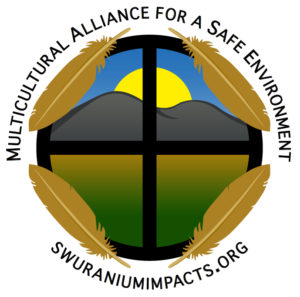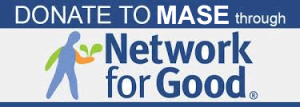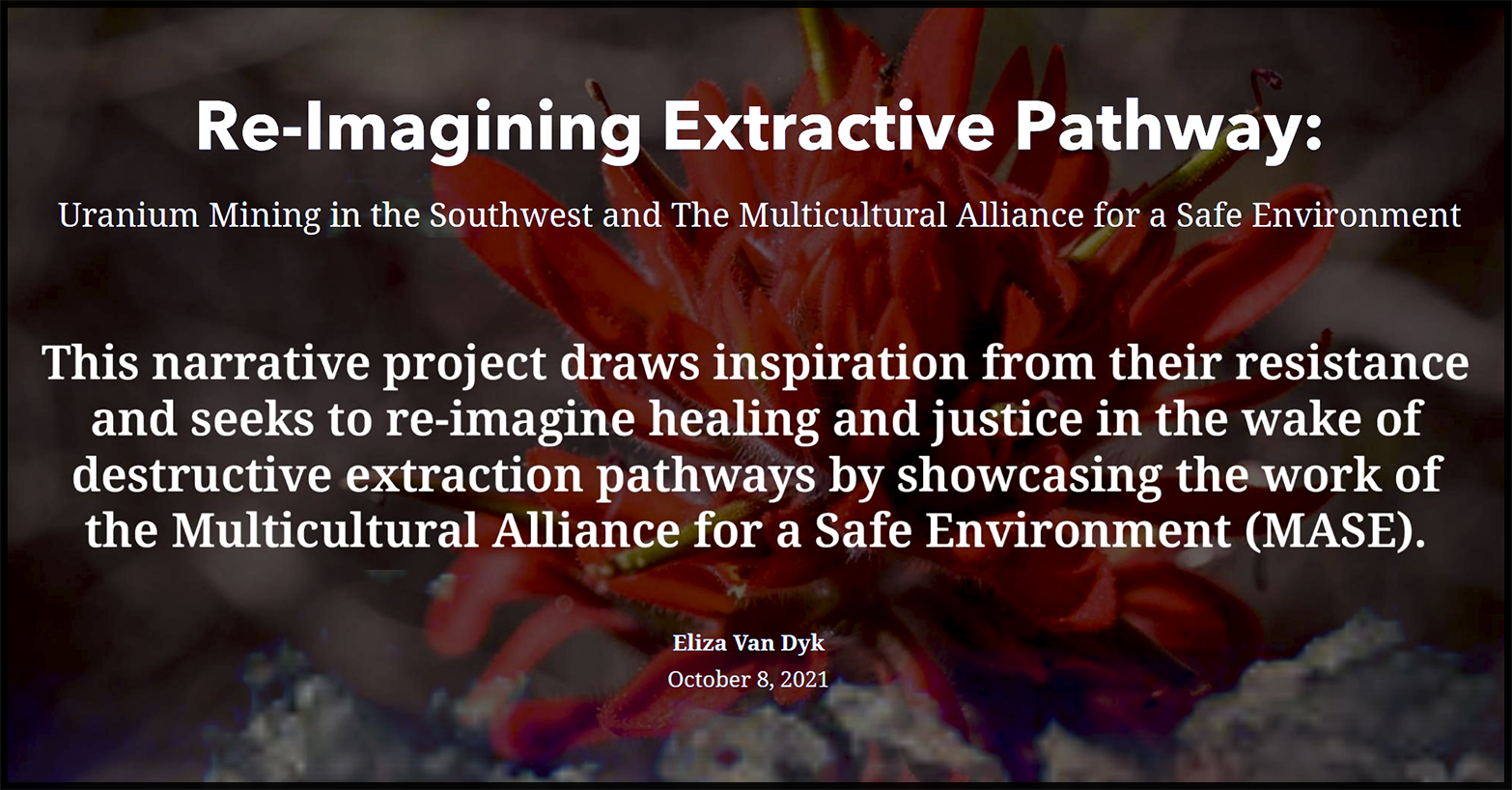Re: Full House Natural Resources Committee Hearing Titled “Unleashing America’s Energy and
Mineral Potential”
Dear Chairman Westerman, Ranking Member Grijalva, and Members of the Natural Resources
Committee:
As your committee considers changes to the energy and mine permitting processes, on behalf of the undersigned, we write to ask you to prioritize efforts that would balance public health, community input, and the protection of watersheds, wildlife habitat and cultural and historic resources on America’s public lands and wildlife. Similarly, we respectfully urge your committee to strongly oppose efforts that would exacerbate deficiencies in the existing mining law and result in an unnecessary increase in mining on federal public lands and puts at risk irreplaceable protected lands, special places, endangered and sensitive wildlife, tribal sacred sites, and culturally significant sites in the guise of a clean energy transition.
Improvements to the Mine Permitting Process
We acknowledge that growing demand for certain materials may require new hardrock mines, including some on federal public lands. However, there are better ways to source minerals than allowing entities to stake claims prior to the discovery of a mineral deposit or imposing arbitrary environmental review timelines. Necessary changes include those considered last Congress in the Clean Energy Minerals Reform Act of 2022. Converting to a leasing system for hardrock minerals—just like the one that oil and gas companies use today–would help provide certainty to the permitting process and result in more timely and socially acceptable decisions.
Congress has already invested significant time and resources into permitting reform for mining. The Inflation Reduction Act (IRA) included $1 billion to support timely and effective
environmental reviews across federal agencies, which should lead to better, more equitable outcomes, and help avoid litigation. Additionally, the Fiscal 2023 budget will help fund public lands management agencies to perform more thorough mining reviews.
These resources for mine permitting build upon those in the Infrastructure Investment in Jobs Act (IIJA). IIJA made permanent the Fixing America’s Surface Transportation Act Permitting Council (Permitting Council), which, in January 2021, added hardrock mining as a covered sector. In November 2022, the Administration announced the Permitting Council will devote $5 million in support of more meaningful consultations with federally recognized tribes in hardrock mine permitting.
IIJA also required the Interior Department to identify process improvements to hardrock mine permitting. A coalition of tribes, indigenous-led organizations, and conservation groups have also petitioned Interior for rules that, if finalized, would result in more timely decisions for hardrock mine permits without sacrificing necessary public input. In response to both, the administration convened the mining reform Interagency Working Group which should recommend mining rule improvements, consistent with the petition. These updates would also help lead to a fair hardrock mine permitting process, delivering more certainty to both claimants and impacted communities.
Mine Permitting Must Be Modernized, Centering on Historically Impacted Communities
Current mining law has allowed for the pollution of America’s environment and waterways, placing additional unjust burdens on communities who have already borne the brunt of our nation’s toxic mining legacy. Already, America is littered with hundreds of thousands of abandoned mines that the Environmental Protection Agency (EPA) estimates have polluted 40% of the headwaters of western U.S. watersheds and will cost taxpayers more than $50 billion to clean up. Under current law, taxpayers are potentially liable for billions more in cleanup costs at currently operating mines—including treatment of water in perpetuity, risking the health of already threatened Western watersheds—because there is no legal requirement for mining companies to remediate lands and waters.
Historical examples of mining companies being given unfettered access to minerals with little to no environmental safeguards have had severely negative consequences—a prime example is found in Navajo Nation’s experience with uranium mining, milling, and toxic pollution. Navajo Nation is situated directly in America’s uranium mining belt, and in the 1950’s and 1960’s fervent uranium development left residents with myriad health risks due to radiation exposure through polluted water and land. Today over 500 of these mines remain unremediated across the Navajo Nation, where they continue to impact residents’ health. Navajo Nation residents are 67 times more likely to live without running water than other residents across the country—and many water sources on the Navajo Nation are contaminated as a result of uranium mining and milling operations. In 2016, researchers with Northern Arizona University discovered high levels of uranium contamination in the water supply of Sanders, Arizona, a small town just outside of the Navajo Nation whose residents are mostly Navajo. It was later discovered that the state had known of the contamination since 2003, but regulators failed to notify the residents of Sanders
until after NAU researchers presented their results to the community. The Navajo Nation is not alone. Past and ongoing impacts of uranium operations on Native communities are extensive.
Any Changes to Mine Permitting Must Explicitly Include Protections for America’s Special Places
Expanding mineral activities on federal public lands without modernizing our mining laws could threaten some of our nation’s most treasured areas. Previous mine permitting proposals have sought to scale back protections for millions of acres of tribal sacred sites, culturally significant places, and iconic natural places. While mining is not permitted within the boundaries of National Parks, mining activities pollute the air and water that crosses the boundaries of protected lands. Insufficiently regulated mining in the name of clean energy development promotes a false choice by risking key lands that we need to conserve for our own health and wellbeing. We urge the committee to reject any legislation that puts important American lands, waters, and wildlife at risk of pollution and degradation.
Conclusion
We respectfully urge Members of the House Natural Resources Committee to oppose efforts that would exacerbate deficiencies in the existing mining law and result in an unnecessary increase in mining on federal public lands and puts at risk irreplaceable protected lands, special places, tribal sacred sites, wildlife, and culturally significant sites in the guise of a clean energy transition. There are common-sense solutions to improve mine permitting and promote responsible mining that Congress should consider, including the community-consent driven leasing system in the Clean Energy Minerals Reform Act of 2022. Additional resources, updated rules, and thoughtful IIJA and IRA implementation will also drive mine permitting efficiency.
Thank you for your consideration.
Sincerely,
The Wilderness Society Earthworks
Earthjustice Sierra Club
National Parks Conservation Association Defenders of Wildlife
Center for Biological Diversity League of Conservation Voters
Natural Resources Defense Council Conservation Lands Foundation
Friends of the Earth Alaska Wilderness League
Grand Canyon Trust Southern Utah Wilderness Alliance
Oregon Natural Desert Association Friends of the Sonoran Desert
Northeastern Minnesotans for Wilderness Arizona Faith Network
New Mexico & El Paso Interfaith Power and Light Los Padres ForestWatch
Sisters of Mercy of the Americas Justice Team Northern Alaska Environmental Center
Arizona Trail Association Conservation Northwest
Wilderness Workshop Citizens to Protect Smith Valley (NV)
Progressive Leadership Alliance of Nevada Uranium Watch
Living Rivers Western Watersheds Project
Save the Scenic Santa Ritas Hispanic Federation
Idaho Conservation League Kamloops Moms For Clean Air
Weber Sustainability Consulting Black Hills Clean Water Alliance
Sheep Mountain Alliance Wild Arizona
Idaho Rivers United Brooks Range Council
Multicultural Alliance for a Safe Environment Okanogan Highlands Alliance
Red Water Pond Road Community Association MEIC
Arizona Mining Reform Coalition American Friends Service Committee
Office of Peace, Justice and Integrity of Creation, Sisters of Charity of New York
RedWaterPond Road Community Tucson Audubon Society
BlueWater Valley Downstream Alliance. River Alliance of Wisconsin
Friends of the Kalmiopsis Kalmiopsis Audubon Society
Information Network for Responsible Mining Cook Inletkeeper
Endangered Species Coalition Rivers Without Borders
Laguna Acoma Coalition For A Safe Environment





